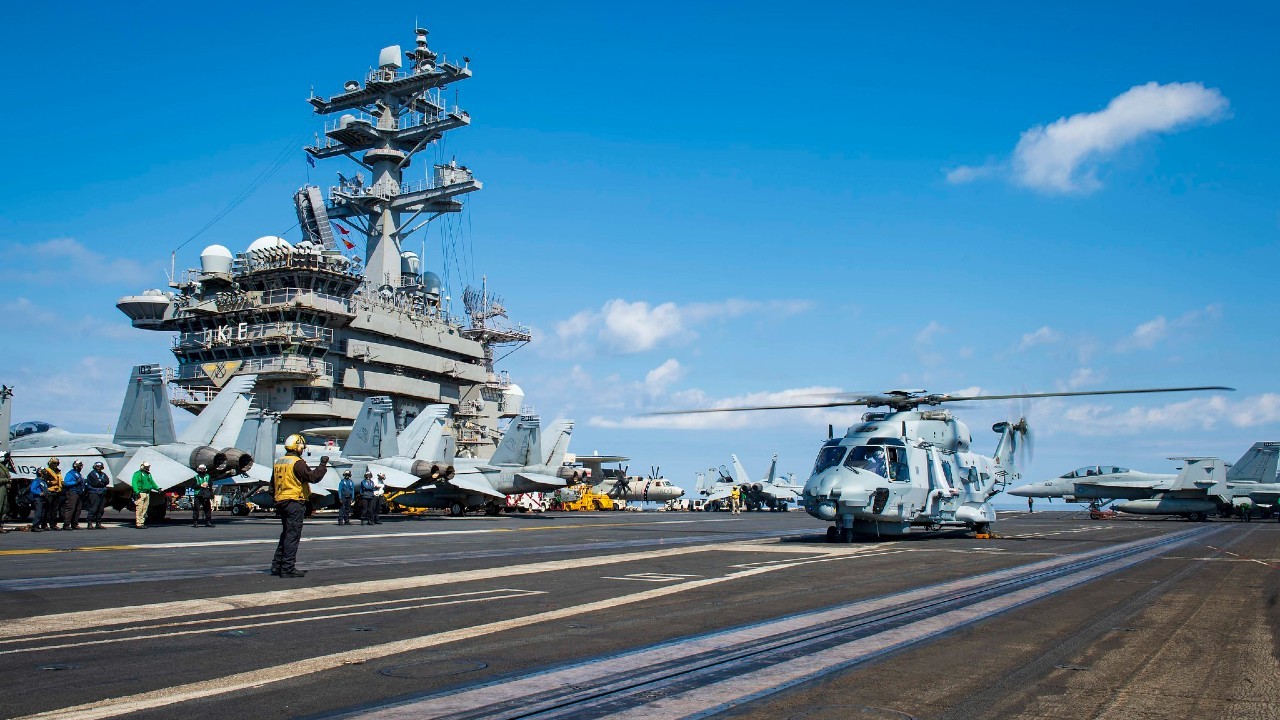Against a backdrop of intensifying strategic competition between Washington and Beijing, President Biden has bold intentions for a comprehensive China policy. With limited resources and competing priorities, the U.S. must focus on key strategic areas where pushback against China can have the biggest impact. One such area is the Eastern Mediterranean, where the world’s four major powers—the United States, the European Union, Russia and China—are competing for resources as well as military, technological, economic and political influence. Countering China’s growing activities in the Eastern Mediterranean will be an important element in America’s strategy.
The Eastern Mediterranean remains a region of critical importance for the United States and the West. Through Greece and Cyprus, it is a frontier of the European Union. Through Greece and Turkey, it is also a NATO frontier. The presence of Israel, a unique U.S. ally, adds to the region’s geopolitical significance. Coupled with the fallout from the conflict in Syria, the rise in political tensions, close encounters between military forces, and overlapping territorial and resource claims among allies and partners in the region, divisions and instability have increased. These developments have created opportunities not just for Russia, but increasingly for China to exert influence.
China’s activities in the area, while relatively new, are growing in scale. In the sphere of investment and trade, the Eastern Mediterranean is a conduit for Chinese power into Europe. Through the Belt and Road Initiative (BRI), China has gained influence over strategic infrastructure, from 5G networks to port facilities. Two important examples include a nearly €600 million investment in the Greek port of Piraeus (dating back to 2006), and China’s success in bringing Italy on board to the BRI in March 2019. In a far more modest move, the United States invested $2.3 million in the northern port of Alexandroupoli although it is in the process of making further investments and expanding military cooperation under the terms of a new defense agreement. The EU’s latest Comprehensive Agreement on Investment only provides more opportunities for economic integration between China and the EU.
Chinese investment in the Eastern Mediterranean is not simply a development for international financial markets or infrastructure projects. These deals typically come with troubling strings attached, giving China control over key intellectual property, capabilities and supply chains, which it can use to undermine the West’s technological and economic edge. Moreover, when it comes to economic competition from direct foreign investment, trade agreements, loan diplomacy and infrastructure projects, America’s lack of a centrally planned economy and government owned industries can act as a disadvantage.
All of this creates the foundations for deeper political, cultural and security relations, while threatening to detach Europe from the United States. Since the end of the Second World War, the U.S. has used investment in Europe, trade relations, and, of course, the security architecture of NATO to sustain the U.S.-Europe partnership the most important and productive geopolitical relationship for both actors. To have this position eroded by Chinese inroads would be a significant setback for the U.S..
To avert this, the United States must maintain and develop a strong and collaborative presence in the Eastern Mediterranean, politically, militarily, and above all, economically. A key step for the Biden team will be establishing mutually productive and profitable relations with Europe. It can start in the Eastern Mediterranean, rather than conceding this space to China. Greek-American and Cypriot-American relations have never been better, and this provides an opportunity for the U.S. to continue to make strides with those countries. Italy is experiencing political turmoil and economic difficulties, compounded by coronavirus. The EU has not displayed sufficient solidarity to earn the respect of Italian citizens and political leaders, creating opportunities for further cooperation with the U.S. The United States needs to encourage partnership and collaboration on investment, trade, travel and shared diplomatic priorities with these countries.
Turkey’s erratic diplomacy under President Tayyip Erdoğan has complicated matters further. However, the prospect of upcoming talks between the two sides in Cyprus, dialogue between Greece and Turkey to settle their maritime disputes, and the turnover of the U.S. administration presents opportunities for the United States to play a role in smoothing relations with Ankara.
Overall, establishing and maintaining a strong foothold in the Eastern Mediterranean is essential to America’s growing strategic competition with Russia and China. The region is critical because the interests of all four major powers intersect in the Eastern Mediterranean.
It would be worthwhile for the Biden Administration to remember that and to work to partner with Europe for mutual benefits leaning on the numerous areas of shared interests and values that stretch across the Atlantic. The Eastern Mediterranean is a great place to nourish the roots of this policy.




